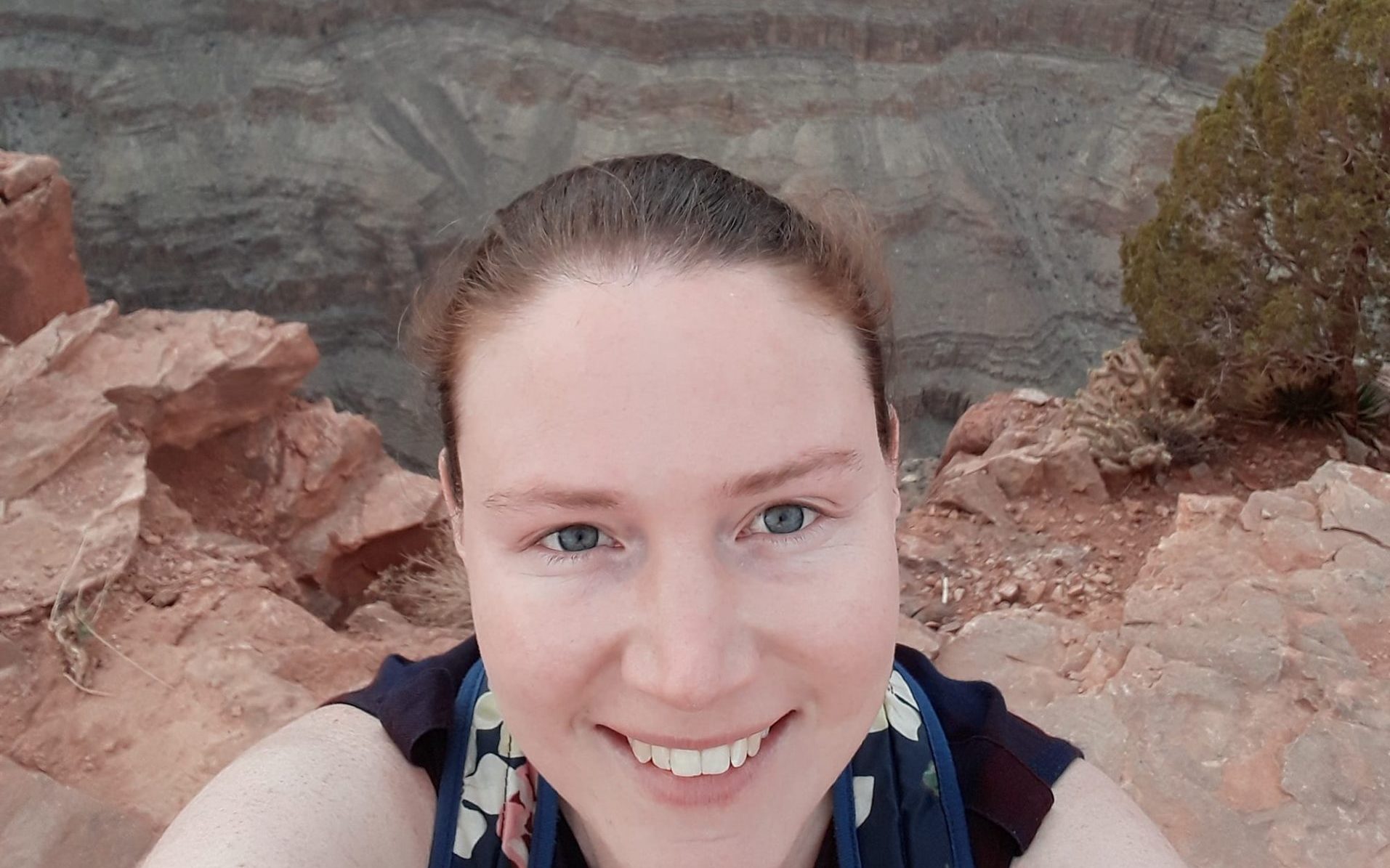Researcher of the Month - January 2022, Dr Joanna Leidenhag

Dr Joanna Leidenhag joined the School of PRHS at the University of Leeds in September 2021 at Lecturer in Theology and Liberal Arts. She previously worked at the University of St Andrews, and did her PhD at the University of Edinburgh. She works in the sub-fields of analytic theology, disability theology, and science-engaged theology.
Tell us a little about your ‘research journey’ – how did you get to where you are right now?
When I left secondary school and first applied to go to University, I failed to get offers from any of the universities I wanted to go to. After a Foundation Year in Fine Art (and a second UCAS application round), I went to the University of St Andrews to study English Literature. I changed majors 4 times in my first two years, before realising that what I love is debating the big ideas that have shaped Western history, such as “What should we worship?”, “What is wrong with the world?”, “What does it mean to be human?”, “What’s the relationship between the sciences and the humanities?” I ended up graduating in Modern History and Theology.
After that, I went to Princeton Theological Seminary (USA) for a MA in Theological Studies and in 2015 I started a PhD at the University of Edinburgh in Systematic Theology. Towards the end of my PhD, I got a post-doctoral fellowship back at the University of St Andrews. I had to finish my PhD at the same time as teaching my first large undergraduate module (not a recommended combination!) But I survived, and after 3 years I came to the University of Leeds (2021).
Who, or what, sparked your interest to work on your particular research area?
In my first year of PhD, I drastically changed my topic because it became apparent that my original proposal was undoable. My husband was just finishing his PhD, and his conclusion was that there needs to be more work on the religious implications of a theory of consciousness called “panpsychism” – the idea that consciousness is not unique to humans, or even animals, but is a fundamental feature of the natural world. I took up the challenge and we often joke that my PhD was the sequel to his. Since this topic draws analytic philosophy together with Christian theology, the relatively new sub-discipline of “Analytic Theology” was an essential community for me; there were a lot of people who really nurtured and encouraged me intellectually.
What are you currently, or about to start, working on?
I am currently working on two big projects. The post-doc I did at St Andrews was funded by two large grants in “Science-engaged Theology” from the John Templeton Foundation. One of the promised outputs was for me and the Project Leader, Dr John Perry, to co-author a short book, which we’re calling, Science-Engaged Theology: A Primer. This is due to be published in a new Cambridge Elements series with Cambridge University Press early next year.
The second project is a more ambitious passion project for me. In my final semester at undergraduate, I was learning about relational approaches to the question “What does it mean to be human?”, when I realise that much of what academics were arguing seem to discriminate against people with autism. I have autistic members of my family, and so I wanted to respond. However, I didn’t have the necessary tools to do so at that stage. I never forgot this class, and I am now trying to write quite a large book on “Theology and Autism” (hopefully I’ll think of a better title before the book is published).
In what way(s) do you feel your research examines the role of religion in public life and the relationship between the two?
For about the last two hundred years, the public concept of ‘religion’ in Western cultures has been dominated, if not defined, by an imagined opposition to ‘science’. These terms are often ill-defined, but a commonly shared assumption is that whatever ‘science’ and ‘religion’ refer to, they are (at best) separate and (at worst) in conflict. My work in science-engaged theology tries to undercut this dichotomy in the public concept of religion.
Science-engaged theology is the study of specific theological questions and topics that benefit from engagement with the methods and discoveries of various natural and human sciences. We also have Theology-engaged Science, where scientific pursuits benefit from theological understanding and context. Science-engaged Theology and Theology-engaged Science are inseparable, because many of our core concepts – ‘sex’, ‘autism’, ‘gluten’, ‘social cognition’, ‘happiness’, ‘cooperation’ etc. are, what I call, entangled concepts. They are concepts that we cannot understand fully unless we appreciate both their theological and scientific resonances.
To take the example of ‘autism’, we cannot understand what autism is without reading (highly debated) psychological theories, hearing the experiences and testimonies of autistic people, and appreciating how relational accounts about what it means to be human in Germany in the early twentieth century (a movement called dialogical personalism) influenced the early pioneers of autism research and continue to play a role in forming the assumptions of researchers today. My work on theology and autism relates to the role of religion in public life in another way because I will include testimony of the role of religion in the lives of autistic individuals. In that sense, I hope to amplify the voices of autistic members of religious communities in the public square.
